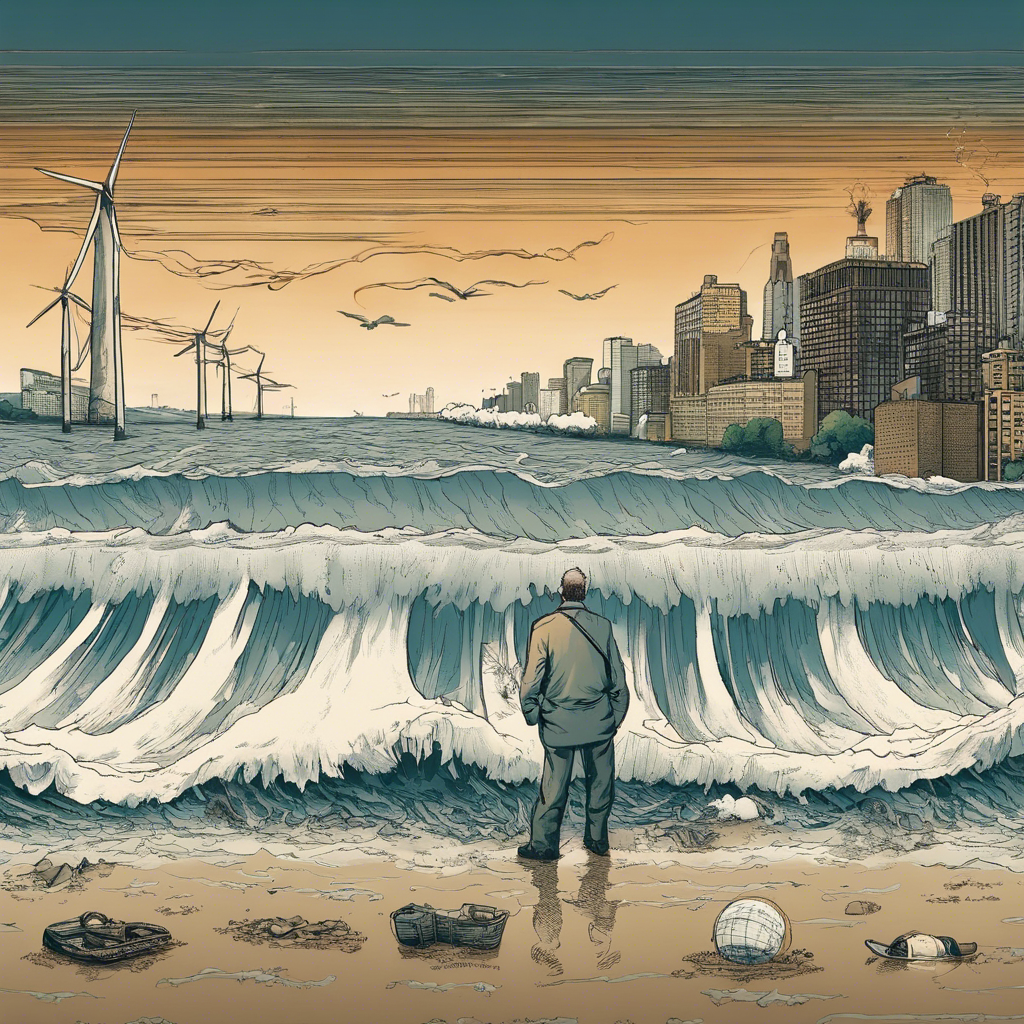The Rising Tide: How Climate Change is Taking Center Stage in Economics Research

Economists Embrace the Impact of Climate Change on Various Sectors
In a small room tucked away in a San Antonio hotel, a group of economists gathered to discuss groundbreaking research on the far-reaching effects of climate change. This session was just one of many at the annual conference of the Allied Social Science Associations, where climate-related presentations were in high demand. From mortgage risk to railway safety, economists are now recognizing the profound impact of climate change on various sectors of the economy. This shift in focus marks a significant turning point, as environmental issues take center stage in economic research.
The Intersection of Climate Change and Mortgage Risk
One of the papers presented at the conference delved into the impact of natural disasters on mortgage risk. As extreme weather events become more frequent and severe, homeowners face increased vulnerability to property damage and financial instability. The study revealed that areas prone to hurricanes, floods, and wildfires experienced higher default rates on mortgages. This research sheds light on the need for policymakers, lenders, and homeowners to consider climate change when assessing mortgage risk.
Railway Safety in the Face of Climate Change
Another study explored the effects of climate change on railway safety. Rising temperatures and extreme weather events pose significant challenges to rail infrastructure, leading to increased maintenance costs and disruptions in service. The research highlighted the need for proactive measures to strengthen railway systems and ensure passenger safety. As climate change continues to escalate, the transportation sector must adapt to mitigate the risks associated with changing weather patterns.
Payday Loans and Climate-Induced Financial Vulnerability
Climate change not only affects physical infrastructure but also has implications for individuals’ financial well-being. A study presented at the conference examined the relationship between climate-related disasters and the use of payday loans. It found that communities hit by natural disasters were more likely to turn to high-interest payday loans to cover immediate expenses. This research underscores the urgent need for financial institutions and policymakers to develop strategies that protect vulnerable populations from predatory lending practices exacerbated by climate change.
The Changing Landscape of Economic Research
The prominence of climate-related papers at the conference indicates a significant shift in the priorities of economists. Traditionally, environmental issues were relegated to the sidelines, considered a niche area of study. However, as the impacts of climate change become increasingly evident, economists are recognizing the urgency of integrating environmental factors into economic models. This growing body of research not only deepens our understanding of the complex relationship between climate change and the economy but also provides valuable insights for policymakers and businesses navigating an uncertain future.
The Way Forward: Collaboration and Action
As economists continue to explore the multifaceted effects of climate change, collaboration between academia, policymakers, and industry becomes crucial. The research presented at the conference highlights the need for interdisciplinary approaches to address the challenges posed by climate change. By leveraging the expertise of economists, scientists, and policymakers, we can develop innovative solutions and implement effective policies to mitigate the impacts of climate change on the economy.
Conclusion:
The surge of climate-related papers at the Allied Social Science Associations conference signals a paradigm shift in economic research. Economists are increasingly recognizing the profound impact of climate change on various sectors, from mortgage risk to railway safety and financial vulnerability. This shift in focus not only reflects the growing urgency of addressing climate change but also provides valuable insights for policymakers and businesses. As the world grapples with the consequences of a changing climate, collaboration and action are essential to build a resilient and sustainable economy for future generations.

